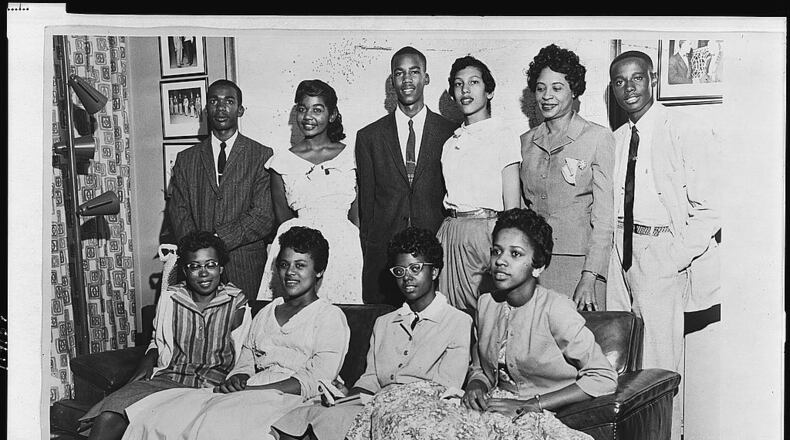HOW TO GO:
WHAT: The Bolinga Black Cultural Resources Center presents Taking a stance, making a change event with guest speaker Minnijean Brown Trickey, one of the Little Rock Nine.
WHEN: Noon, Thursday
WHERE: Apollo Room inside Wright State University's Student Union, 3640 Colonel Glenn Highway, Fairborn.
COST: Free
Call 775-5645, email andrew-bryce.hudson@wright.edu or visit www.wright.edu/bolinga-black-cultural-resources-center for additional information.
A civil rights leader who was one of nine students in 1957 to integrate an all-white Arkansas high school will appear Thursday at Wright State University.
Minnijean Brown Trickey, one of the Little Rock Nine, will speak at noon in the Student Union. The free event, hosted by the university’s Bolinga Black Cultural Resources Center, is open to the public.
“When we look at uncommon heroes, I think she is definitely one,” said Bryce Hudson, the center’s assistant director and relative of Brown Trickey. “When you talk about human rights, you talk about respect for life and respecting all. During that critical time period the Little Rock Nine, Dr. King, all these uncommon unsung heroes, set the platform for which diversity and inclusion stand on today.”
In 1957, a federal court ordered Central High School officials to comply with the Supreme Court’s 1954-55 Brown vs. Board of Education decision that ended public school segregation. Arkansas Governor Orval Faubus defied the court’s orders at first, but eventually agreed to use the National Guard to protect Brown Trickey and eight other black students as they entered Central High School, accordng to the U.S. Department of the Interior.
Faubus did this only after a meeting with President Dwight D. Eisenhower. However, Faubus changed his mind again and dismissed the troops, leaving the black students exposed to an angry white mob. When Faubus refused to restore the National Guard’s protection, Eisenhower dispatched 101st Airborne Division paratroopers to Little Rock and put the National Guard under federal command.
“Students should know that after the Brown vs. Board of Education ruling things did not change immediately because it also did not change the hearts of people,” said Patricia Day, history teacher at Thurgood Marshall High School. “Young people should pay attention and many others about what happened in the segregated south because it is American history and not black history.”
Margaret Peters, a local historian and retired Dayton Public School teacher, agrees.
“They don’t know how hard the dominant society has worked for generations to make sure that black kids did not get an education,” Peters said. “If you have one group that is allowed to and encouraged to get as much education as possible and then you have another group that is denied that opportunity, what it does is keep them from making the same strides economically. They can’t get the jobs that make the good salaries.”
About the Author
